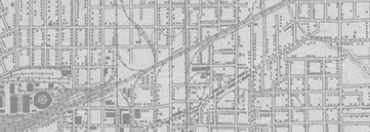


Back
Rev. Marvin Lare Oral History
Videotaped oral history interview with Rev. Marvin Lare. A Methodist minister who took part in the 1965 Selma to Montgomery march, Lare lived in Dallas from 1965 to 1969. During that time, he was part of a local contingent at the funeral for Dr. Martin Luther King Jr. in Atlanta, and he helped organize a Dallas march in support of the 1968 Poor People’s Campaign. Lare later interviewed more than 100 activists for the multi-volume series, "Champions of Civil and Human Rights in South Carolina," at the University of South Carolina. Interview conducted over Zoom on May 31, 2022 by Curator Stephen Fagin. The interview is 1 hour and 18 minutes long.
Rev. Marvin Lare Oral History
05/31/2022
Interviews
Civil rights
Oral histories
Author
Poor People's Campaign
Funeral
Protests
King, Martin Luther, Jr.
McMillan, Marion Ernest
NAACP
Southern Christian Leadership Conference
Student Non-Violent Coordinating Committee (SNCC)
Dallas
Atlanta
Authors, Filmmakers, and Researchers (OHC)
Civil Rights and Social Activism (OHC)
Dallas and 1960s History and Culture (OHC)
Born digital (.m4a file), Born digital (.mp4 file), Born digital (.vtt file)
Duration: 78 Minutes
Oral History Collection/The Sixth Floor Museum at Dealey Plaza
2022.001.0040
In this oral history, Rev. Lare discusses the Dallas march and rally organized in support of the Poor People’s Campaign and references local news coverage of the event. According to The Dallas Morning News, in May 1968, a contingent of approximately 200 Poor People's Campaign participants from El Paso and San Antonio was scheduled for an overnight stay in Dallas at Fair Park. To mark their arrival, a march and rally was organized by the Dallas NAACP and Urban League. After a last minute change rerouted two of the three buses, only one bus with twenty-seven residents of San Antonio and the Rio Grande Valley stopped in Dallas. Nevertheless, the march and rally proceeded as planned. A group of local residents gathered at 6:00PM on Saturday, May 18, 1968, at the corner of Forest Avenue and Gould, between Lamar and Ervay, for a march down Forest Avenue to a 7:15PM rally at the Fair Park band shell. Dallas police estimated the crowd at its peak at less than 500, though the Morning News suggested that "there seemed to be as many police and reporters as there were marchers." Speakers at the Fair Park rally included the late Rev. Bob Felder of the Southern Christian Leadership Conference and Ernest McMillan, co-founder of the Dallas chapter of the Student Non-violent Coordinating Committee. According to a local news story about the event, McMillan was not "enthusiastically received" at the rally. Although he could not recall this specific rally amongst his decades of activism, when asked about this in 2022, McMillan speculated that he probably urged attendees to focus more on the local struggle rather than mobilizing in Washington. If so, that would certainly explain his less-than-enthusiastic response from supporters of the national Poor People's Campaign. Earlier that week, a food drive led by the late Methodist minister Bill McElvaney and Felton Alexander of the Dallas Urban League collected food for the campaign participants to enjoy during their short overnight stay in Dallas. The busload of twenty-seven, along with eight additional participants who arrived late Saturday night, ate some of this donated food prior to a 7:00AM worship service at Fair Park on Sunday, May 19, 1968. The group left Dallas with a police motorcycle escort at 8:00AM for planned stops in Tulsa and Kansas City before continuing their journey to the Resurrection City encampment in Washington, D.C. Overall, the Dallas event was described as peaceful and uneventful. Local police were "warmly commended" by organizers, and it was noted that the march and rally followed just a week after the city’s first official Job Fair, sponsored by the Dallas Chamber of Commerce and Urban League. Only one Dallas Morning News article mentioned Rev. Lare by name, indicating that he was organizing a group of Dallas residents to join a Houston contingent the following Friday, May 24, for a trip to Washington, D.C. As discussed in this oral history, Rev. Lare cannot recall why he did not go to Washington as originally planned, though he does remember being involved in organizing local efforts in support of the Poor People's Campaign. -- Stephen Fagin, Curator
As discussed towards the end of this interview, beginning in the early 2000s, Rev. Lare conducted more than 100 oral histories for what was originally conceived as a five-volume oral history book series focused on civil rights activism in South Carolina. While only one volume was ultimately published in 2016, the project evolved into a five-volume digital exhibition by the Department of Oral History at the University of South Carolina. All oral histories in the "Champions of Civil and Human Rights in South Carolina" series may be accessed here: Champions of Civil and Human Rights in South Carolina – A Digital Exhibition by the Department of Oral History at the University of South Carolina (sc.edu). -- Stephen Fagin, Curator
Rev. Marvin Lare Oral History
Videotaped oral history interview with Rev. Marvin Lare. A Methodist minister who took part in the 1965 Selma to Montgomery march, Lare lived in Dallas from 1965 to 1969. During that time, he was part of a local contingent at the funeral for Dr. Martin Luther King Jr. in Atlanta, and he helped organize a Dallas march in support of the 1968 Poor People’s Campaign. Lare later interviewed more than 100 activists for the multi-volume series, "Champions of Civil and Human Rights in South Carolina," at the University of South Carolina. Interview conducted over Zoom on May 31, 2022 by Curator Stephen Fagin. The interview is 1 hour and 18 minutes long.
Rev. Marvin Lare Oral History
05/31/2022
Interviews
Civil rights
Oral histories
Author
Poor People's Campaign
Funeral
Protests
King, Martin Luther, Jr.
McMillan, Marion Ernest
NAACP
Southern Christian Leadership Conference
Student Non-Violent Coordinating Committee (SNCC)
Dallas
Atlanta
Authors, Filmmakers, and Researchers (OHC)
Civil Rights and Social Activism (OHC)
Dallas and 1960s History and Culture (OHC)
Born digital (.m4a file), Born digital (.mp4 file), Born digital (.vtt file)
Duration: 78 Minutes
Oral History Collection/The Sixth Floor Museum at Dealey Plaza
2022.001.0040
In this oral history, Rev. Lare discusses the Dallas march and rally organized in support of the Poor People’s Campaign and references local news coverage of the event. According to The Dallas Morning News, in May 1968, a contingent of approximately 200 Poor People's Campaign participants from El Paso and San Antonio was scheduled for an overnight stay in Dallas at Fair Park. To mark their arrival, a march and rally was organized by the Dallas NAACP and Urban League. After a last minute change rerouted two of the three buses, only one bus with twenty-seven residents of San Antonio and the Rio Grande Valley stopped in Dallas. Nevertheless, the march and rally proceeded as planned. A group of local residents gathered at 6:00PM on Saturday, May 18, 1968, at the corner of Forest Avenue and Gould, between Lamar and Ervay, for a march down Forest Avenue to a 7:15PM rally at the Fair Park band shell. Dallas police estimated the crowd at its peak at less than 500, though the Morning News suggested that "there seemed to be as many police and reporters as there were marchers." Speakers at the Fair Park rally included the late Rev. Bob Felder of the Southern Christian Leadership Conference and Ernest McMillan, co-founder of the Dallas chapter of the Student Non-violent Coordinating Committee. According to a local news story about the event, McMillan was not "enthusiastically received" at the rally. Although he could not recall this specific rally amongst his decades of activism, when asked about this in 2022, McMillan speculated that he probably urged attendees to focus more on the local struggle rather than mobilizing in Washington. If so, that would certainly explain his less-than-enthusiastic response from supporters of the national Poor People's Campaign. Earlier that week, a food drive led by the late Methodist minister Bill McElvaney and Felton Alexander of the Dallas Urban League collected food for the campaign participants to enjoy during their short overnight stay in Dallas. The busload of twenty-seven, along with eight additional participants who arrived late Saturday night, ate some of this donated food prior to a 7:00AM worship service at Fair Park on Sunday, May 19, 1968. The group left Dallas with a police motorcycle escort at 8:00AM for planned stops in Tulsa and Kansas City before continuing their journey to the Resurrection City encampment in Washington, D.C. Overall, the Dallas event was described as peaceful and uneventful. Local police were "warmly commended" by organizers, and it was noted that the march and rally followed just a week after the city’s first official Job Fair, sponsored by the Dallas Chamber of Commerce and Urban League. Only one Dallas Morning News article mentioned Rev. Lare by name, indicating that he was organizing a group of Dallas residents to join a Houston contingent the following Friday, May 24, for a trip to Washington, D.C. As discussed in this oral history, Rev. Lare cannot recall why he did not go to Washington as originally planned, though he does remember being involved in organizing local efforts in support of the Poor People's Campaign. -- Stephen Fagin, Curator
As discussed towards the end of this interview, beginning in the early 2000s, Rev. Lare conducted more than 100 oral histories for what was originally conceived as a five-volume oral history book series focused on civil rights activism in South Carolina. While only one volume was ultimately published in 2016, the project evolved into a five-volume digital exhibition by the Department of Oral History at the University of South Carolina. All oral histories in the "Champions of Civil and Human Rights in South Carolina" series may be accessed here: Champions of Civil and Human Rights in South Carolina – A Digital Exhibition by the Department of Oral History at the University of South Carolina (sc.edu). -- Stephen Fagin, Curator









